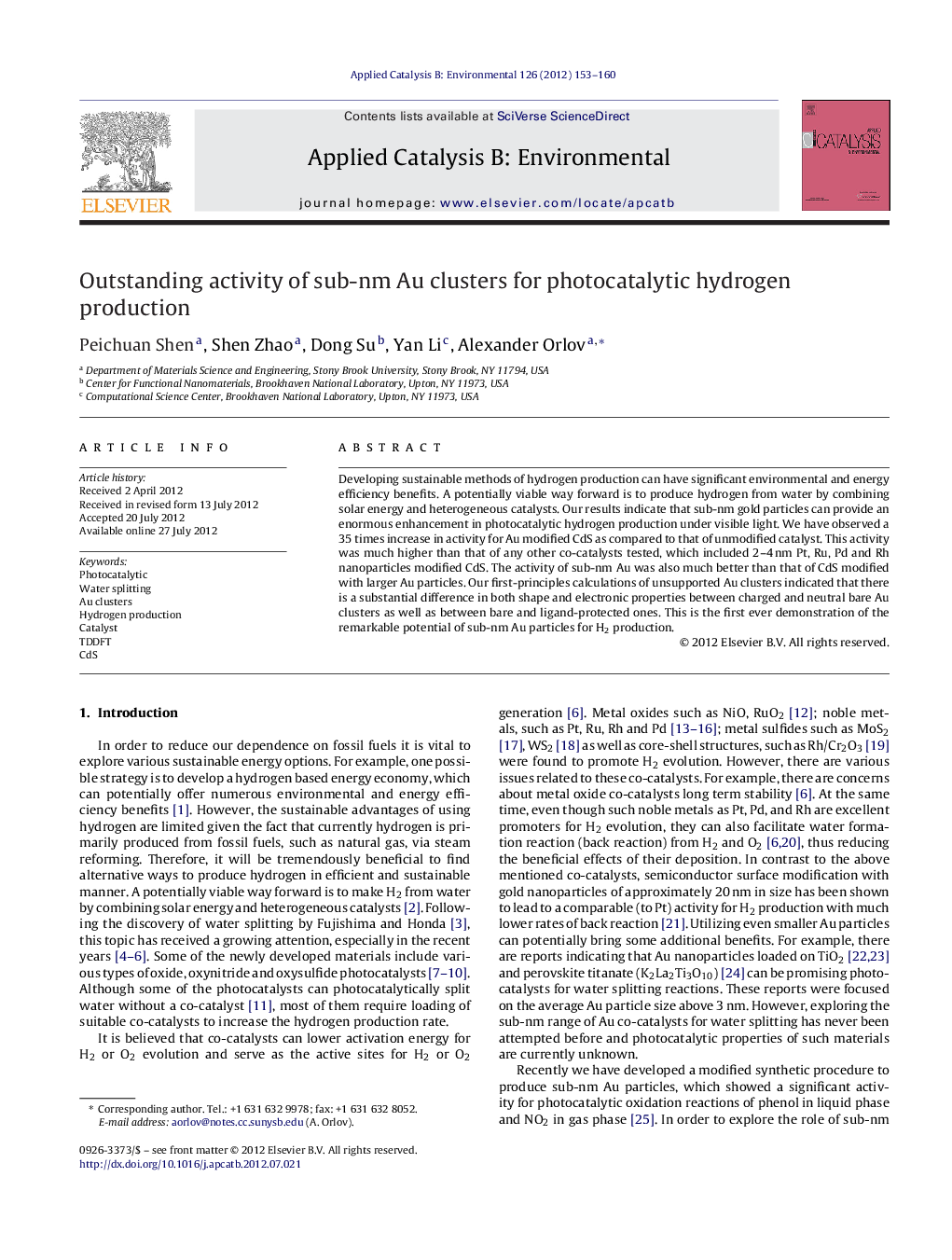| کد مقاله | کد نشریه | سال انتشار | مقاله انگلیسی | نسخه تمام متن |
|---|---|---|---|---|
| 46539 | 46441 | 2012 | 8 صفحه PDF | دانلود رایگان |

Developing sustainable methods of hydrogen production can have significant environmental and energy efficiency benefits. A potentially viable way forward is to produce hydrogen from water by combining solar energy and heterogeneous catalysts. Our results indicate that sub-nm gold particles can provide an enormous enhancement in photocatalytic hydrogen production under visible light. We have observed a 35 times increase in activity for Au modified CdS as compared to that of unmodified catalyst. This activity was much higher than that of any other co-catalysts tested, which included 2–4 nm Pt, Ru, Pd and Rh nanoparticles modified CdS. The activity of sub-nm Au was also much better than that of CdS modified with larger Au particles. Our first-principles calculations of unsupported Au clusters indicated that there is a substantial difference in both shape and electronic properties between charged and neutral bare Au clusters as well as between bare and ligand-protected ones. This is the first ever demonstration of the remarkable potential of sub-nm Au particles for H2 production.
Figure optionsDownload as PowerPoint slideHighlights▸ This work is the first ever application of sub-nm Au co-catalysts for water splitting. ▸ Sub-nm gold particles are extraordinarily active for hydrogen production under visible light. ▸ This activity was much higher than that of any other co-catalysts tested. ▸ The activity of sub-nm Au was also much better than that of CdS modified with larger Au particles.
Journal: Applied Catalysis B: Environmental - Volume 126, 25 September 2012, Pages 153–160